SEO Agency Secrets: Insider Tips for SMEs to Dominate Search Rankings
No one in business needs an introduction to the importance of search engine optimisation (SEO). To a significant degree, online visibility depends on search engine visibility.
More than two-thirds of all online experiences begin with a search engine, and when you combine Google’s dominant search platform with its Images and Maps applications, it accounts for an astonishing 93% of global web traffic. Although we live in an age of social media, SEO still drives 1000x more web traffic than organic discovery on social media.
All of these reasons and more stack up to make SEO a marketing necessity. But that doesn’t make it easy to succeed, especially for smaller businesses.
Competition in SEO is intense. It is believed that Google indexes some 400 billion web documents or pages for search purposes. But when it comes to search results rankings, if you don’t make the top three positions, your chances of someone clicking through to your page are less than one in 10.
One of the more shocking statistics you’ll ever hear about SEO is that 96.55% of web pages in existence get zero traffic from Google. That’s how much of a jungle it is out there.
Given this intense level of competition, SMEs are at an immediate disadvantage. Multinational enterprises can employ entire teams dedicated to SEO full time, they can afford the very best analytics and automation tools, and they have the resources to play Google at the constantly changing algorithms game.
For SMEs, the opposite is true. And yet that pressure to ‘do SEO’ is still there. Not doing so feels like giving up on boosting your online presence.
So what’s the secret to SEO success for small businesses? As a London SEO agency, we have a great track record of helping SMEs get the search rankings they need to grow their online brand.
Here are some of our insider tips for success.
Focus on Local SEO
Local SEO is a big deal for small businesses – so much so that we dedicated this article to that very subject if you want a more in-depth rundown on how and why it works.
But just to summarise a few stats that highlight the local SEO opportunity – local search accounts for almost a quarter of all web traffic, and 97% of people say online is the main place they learn about local businesses. What is more, 28% of local searches result in a purchase, which is an astonishing conversion rate. Even better, people are on average prepared to pay 22% more for local products and services if the business has a good online reputation.
So local SEO helps you to tap into a huge traffic stream that fits with how consumers like to find local businesses. And it drives sales! As for the how the best starting point for local SEO success is a Google My Business profile. Google My Business serves three essential SEO functions in one:
● It creates an online listing for your business which is validated by Google and automatically indexed for geographical searches in your area.
● It provides a platform for user reviews, which automatically get published whenever your business shows up in search results. Remember that uplift in what people are prepared to pay when they see a business has a good reputation online!
● It lets you post content as you would to social media, and in effect syndicates content across social media channels. Being active on social media is also great for SEO because it helps to create backlinks to your site, which is a ranking factor.

Get Creative with Content Marketing
When marketers talk about ‘content’, they mean the stuff people post online. Photos, videos, podcasts or, as is still most common, text of one type or another, all count as content. And it all plays a huge role in SEO.
We’ve just mentioned the value of posting content across social media via Google My Business, and how that creates backlinks to your site. Posting regularly to social media also keeps your accounts ‘fresh’, and keeps people engaged, and of course, those links provide a route for traffic to your site.
But it’s not just about social media. There are other ways to get content online and out to your audiences, like blogs, email marketing, or simply keeping the content on your own website up to date. All of it carries the same benefits. All of it counts as content marketing.
The key, both for content marketing to work on its own terms and to have an impact on SEO, is to put time and energy into making your content the best it can possibly be. The key principle here is that content is what you grab people’s attention with online. So you want it to stand out, you want it to be relevant, and you want it to have value to your audience. That starts with understanding what people want.
When you deliver, you get engagement and traffic. And that gets picked up by search algorithms, which are programmed to boost the most popular, most important sites that offer the best experience.
Lean into Long Tail Keywords
SEO is a numbers game. Remember how we started out by highlighting the crazy levels of competition you face getting your web pages to rank against 400 billion rivals? Well, having any kind of success against odds like that is all about playing the percentages.
Of course, you’re not facing off against 400 billion competitors every time. But search boils down to search engine algorithms first scraping all the pages they can find that index for the terms used in a specific search query. And then ranking them according to an increasingly long list of criteria that includes relevance, quality, popularity and a lot more.
The first thing you can do to boost your chances of ranking highly is to shorten the list of competitors you are indexed against. Or, more accurately, put yourself in a smaller field. This involves choosing the keywords you decide to optimise for carefully. Some search terms are just incredibly popular. As an SME, your chances of ranking for them go down the more popular they are.
As a rule of thumb, the shorter a search term, the more often it will be used. To box clever, SMEs can go after what are known as ‘long tail keywords’, or search terms more than three words long. The more words there are in a search term, the more variables there are. The field gets spread. The competition becomes less fierce.
You don’t have to do this blind, however. SEO analytics and research tools will let you find the kind of search terms, long and short, that people are using for businesses like yours. You can see ranking and indexing data, which is often very fluid. The trick is to pick terms that have high use and relatively low levels of competition – or to at least strike the best balance available between the two.
Take control of your SEO fortunes today!
So there you have it, our top three insider tips for SEO success for SMEs. Yes, it’s a jungle out there. But with a strong focus on local SEO, great content and a smart keyword strategy, you can boost your business’s visibility in organic search in no time.
One final tip – don’t feel you have to go it alone. SEO can be tough to get right. Choosing a digital marketing partner with proven expertise in SEO for small businesses can transform your fortunes. We’re always ready to start our next success story, so get in touch today and make it yours!



